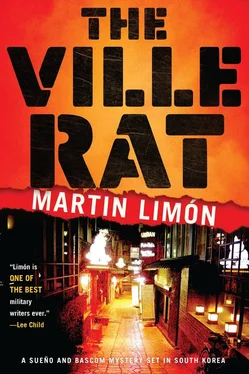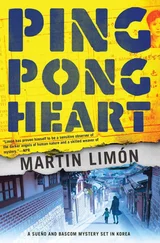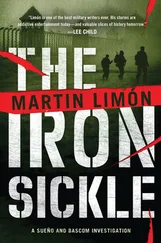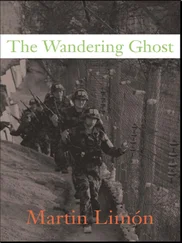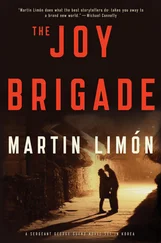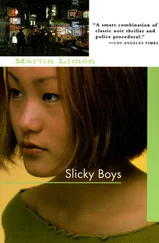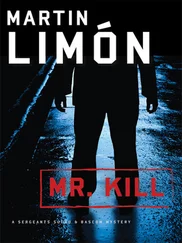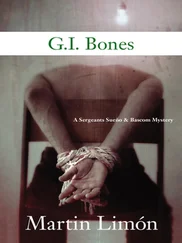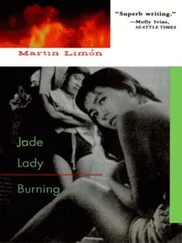Martin Limon - The Ville Rat
Здесь есть возможность читать онлайн «Martin Limon - The Ville Rat» весь текст электронной книги совершенно бесплатно (целиком полную версию без сокращений). В некоторых случаях можно слушать аудио, скачать через торрент в формате fb2 и присутствует краткое содержание. Год выпуска: 2015, Издательство: Soho Press, Жанр: Полицейский детектив, на английском языке. Описание произведения, (предисловие) а так же отзывы посетителей доступны на портале библиотеки ЛибКат.
- Название:The Ville Rat
- Автор:
- Издательство:Soho Press
- Жанр:
- Год:2015
- ISBN:нет данных
- Рейтинг книги:3 / 5. Голосов: 1
-
Избранное:Добавить в избранное
- Отзывы:
-
Ваша оценка:
- 60
- 1
- 2
- 3
- 4
- 5
The Ville Rat: краткое содержание, описание и аннотация
Предлагаем к чтению аннотацию, описание, краткое содержание или предисловие (зависит от того, что написал сам автор книги «The Ville Rat»). Если вы не нашли необходимую информацию о книге — напишите в комментариях, мы постараемся отыскать её.
The Ville Rat — читать онлайн бесплатно полную книгу (весь текст) целиком
Ниже представлен текст книги, разбитый по страницам. Система сохранения места последней прочитанной страницы, позволяет с удобством читать онлайн бесплатно книгу «The Ville Rat», без необходимости каждый раз заново искать на чём Вы остановились. Поставьте закладку, и сможете в любой момент перейти на страницу, на которой закончили чтение.
Интервал:
Закладка:
There were no menus, only large hand-printed signs papered to the wall: bibimbap, mae-un tang, naengmyeon, and dubu jjigae baekban, amongst other delights. Sturdy waitresses wearing long cotton aprons and with their hair tied severely in white bandannas plowed through the crowd with huge, round trays laden with steaming metal bowls and plastic plates of cabbage and turnip kimchi. No elegant china in this place. When the boys blocked their way or got too grabby, fat female elbows jabbed callused knuckles and muscled ribs.
Mr. Kill pulled a sheet of paper out of his pocket, smoothed it on the rough wooden surface, and started to talk. He almost had to shout to be heard, which is why I think he chose this place, so no one could eavesdrop. I finished my noodles and shoved the bowl aside. Ernie did the same.
Bearing a huge brass pot, one of the waitresses leaned over our table and sloshed warm barley tea into thick porcelain cups. Mr. Kill barely jerked the paper away in time. Like the goddess of all floods, the waitress ignored his discomfort and, as fast as she’d come, she was gone.
“This is what was in her sleeve,” Kill told us.
“The woman in the red dress?” Ernie asked.
“Yes,” Mr. Kill replied. “Precisely. In traditional Korean dresses, there are interior pockets hidden inside the long sleeves. Remember that snippet of paper we found?”
I nodded.
“It had calligraphy on it,” Mr. Kill continued. “I thought I recognized it at first, but I wanted to be sure, so we had it analyzed.”
He slid the paper toward me. It was three lines of neatly printed hangul .
“Of course what she had was just a portion of this poem. The first five words, to be exact, written in ink, we think with a horsehair brush. But I recognized it from the beginning. It’s the first five words of a work done in the ancient sijo style, probably the most famous poem in the Korean language.
“Hwang Ji-ni,” I said.
Mr. Kill sat back, eyes popping wide. “You know it?”
“I know of it. I read the poem in English translation once in one of my textbooks.”
“You would,” Ernie said, disgusted. “Read, read, read. That’s all you ever do.” He grabbed a mug of tea and slurped loudly. “Okay,” he went on, “so she liked poetry. So what?”
Mr. Kill ignored him. “The poem was hand copied, not with a pencil or a ballpoint pen but with a traditional writing implement. We found a single strand of hair clinging to the paper. It turned out to be horsehair.”
“Horsehair?” Ernie glanced at me, then at Mr. Kill.
“That’s the traditional way to make Chinese writing brushes,” I told him. “Nobody makes ’em that way anymore. The few companies that do make old-fashioned writing brushes use synthetic materials.”
“Maybe it’s too hard to catch the horse,” Ernie said.
“Except for one place that still makes them in the traditional manner,” Mr. Kill said. “Red China.”
“So she’s a Commie spy?” Ernie asked.
“No. I doubt that. All imports from Communist countries are banned here in the Republic of Korea. Still, there are a few things people covet. Chinese ink, the inkstone, the horsehair brush-these are examples. Those who follow the ancient art of calligraphy believe that the synthetic substitutes are unworthy of their erudition.”
“So some are smuggled in?” Ernie said.
“Precisely. Mostly from Hong Kong or Japan.”
“They allow the import of goods from Red China?”
“Yes. Unfortunately.”
“So this gal liked poetry,” Ernie said, “and she used a contraband brush to write it down. So what?”
“Not your typical GI business girl,” I said.
Ernie thought about that. “No. Most of them don’t get past the sixth grade. But maybe she didn’t write it. Maybe somebody else did.”
“Maybe.”
We sat in silence for a moment. Apparently, chow time was over, because the Korean soldiers rose from their benches in groups and started to depart. Many of them shot us curious glances as they passed, but they were polite. I didn’t hear one soldier use the phrase kocheingi . Big nose.
Then I thought of something. “What about the paper?” I asked.
Mr. Kill smiled broadly. “I thought you’d never ask. Yes, that’s an important clue. The paper the poetry was written on is imported also, handmade from the bark of the mulberry tree. Not manufactured here in Korea or anywhere else that I know of, other than Red China.”
“If they’re such dedicated Communists and modern and stuff,” Ernie asked, “why do they still make these things?”
“Foreign exchange,” Mr. Kill replied. “There’s a huge demand in Singapore, Taiwan, Japan, and other countries with enclaves of Chinese culture.”
“So they’re anxious to make a buck.” Ernie nodded. “But as far as we know, that red dress and the paper in the sleeve didn’t even belong to the dead woman. Maybe she just grabbed them and ran, not knowing about the poetry or the mulberry leaves or any of that crap.”
“Maybe,” Kill said. “Probably even, since she had been in such a rush. But still, it tells us something. Whoever she’s associating with had gone to a lot of trouble and a lot of expense to buy contraband Chinese writing implements.”
“You can track those,” I said.
Mr. Kill nodded. “We’re working on it now.”
“Doesn’t sound like a GI,” Ernie said.
“No, it doesn’t,” Mr. Kill answered. “But then what was this young woman doing way up here near the DMZ, running through a GI village right outside of an American compound, speaking broken English, pleading with an American MP to save her life?”
The question hung in the air. None of us had any answers.
A different MP and a different Korean contract guard manned the front gate of Camp Pelham. I didn’t ask about gate guard Kim because I figured he’d been reassigned to either one of the back gates or, worse, perimeter patrol. The MP stared at our badges stoically and then called the Camp Pelham MP station. After a few mumbled words, he waved us through the gate. Apparently, the 8th Army provost marshal’s directive to cooperate was working, at least so far.
We’d been here before, to the battalion headquarters, but we bypassed that single-story complex and kept walking down the narrow blacktop road. Green Quonset huts lined either side of the road, interspersed with whitewashed signs sporting black stenciled lettering: battalion ammo point; alpha battery, 2/17th fa; bravo battery; and finally charley battery, 2nd of the 17th field artillery. Without knocking, we pushed through the double swinging doors of the orderly room.
A first sergeant was waiting for us. He didn’t stand up. “You’re here about Threets,” he said, pulling a half-smoked stogie out of his mouth.
“We’re here about the shooting,” I said.
“Yeah. Same same. You’ll want to talk to the CO and the executive officer. They’re both out. Don’t know when they’ll be back.” He had a smug smile on his face, as if we’d just been checkmated.
“What makes you think we want to talk to them?” Ernie asked.
The first sergeant’s eyes narrowed. He was a husky man, muscle bulging out of a neatly pressed but faded fatigue blouse. His name tag said Bolton. “Because they’re in charge,” he said in a low, menacing tone, daring us to contradict him.
“I know who we want to talk to,” Ernie replied, “and it ain’t no freaking officers.”
First Sergeant Bolton stood, placing the remnants of his cigar gently into a glass ashtray. “No one talks to the men until the CO says so.”
“Bull,” Ernie replied. He turned and together we walked out of the orderly room. Off to the left was a small billeting area, probably for the NCOs. In front of us, across the narrow street, were two large Quonset huts linked together by a cement-block building with steam rising from aluminum vents. Two enlisted barracks with a latrine wedged in the middle. The same setup we’d seen in camp after camp throughout the Korean peninsula.
Читать дальшеИнтервал:
Закладка:
Похожие книги на «The Ville Rat»
Представляем Вашему вниманию похожие книги на «The Ville Rat» списком для выбора. Мы отобрали схожую по названию и смыслу литературу в надежде предоставить читателям больше вариантов отыскать новые, интересные, ещё непрочитанные произведения.
Обсуждение, отзывы о книге «The Ville Rat» и просто собственные мнения читателей. Оставьте ваши комментарии, напишите, что Вы думаете о произведении, его смысле или главных героях. Укажите что конкретно понравилось, а что нет, и почему Вы так считаете.
